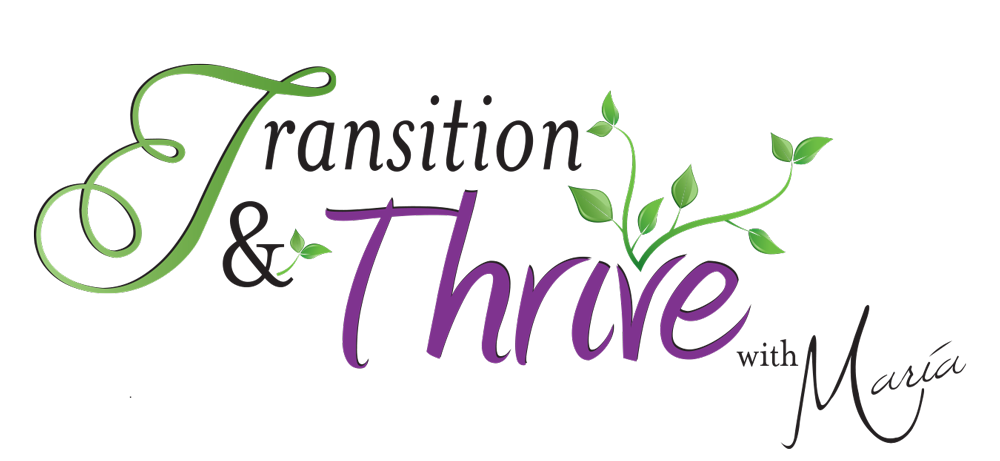Bouncing back from tough times requires resilience skills. And that takes learning to manage thoughts, responses, and actions to your life events. It takes confidence that the choices you make are good ones. Managing your emotions and feeling confident may be a stretch to accomplish in the face of difficult circumstances. But I have good news. Resilience skills can be discovered and nurtured.
If you’re ready to develop resilience for the next time life turns you upside down, you can apply these seven concepts to your day-to-day life and feel yourself getting stronger to face adversity.
You Can Develop Resilience Skills with Practice
1 | Understand what it means to be resilient.
-
-
- Life is meant to grow through, not just go through. Your ability to adapt to change is essential to bouncing back when you get knocked down.
- Change is a constant in this life, with ups and downs, ebbs and flows. If you’re able to accept this, you’ll be more motivated to get curious about the lessons you can learn from the cards you’re dealt and the choices you make.
- You’re not the only one who needs to learn resilience skills. No one is born with resilience. You’re in good company.
-
2 | Learn how to manage your emotional response
-
-
- You get to choose your response to every situation you face. Just because you feel something or think something doesn’t mean you have to act on it.
- Change the way you look at your situation so you can see it from a different perspective.
- Be mindful not to dwell on the past or focus too much on the future. Instead, practice staying in the present where you can make the most impact.
- Do things you enjoy so you can reduce stress and create positive experiences.
-
3 | Own your actions, reactions, and blunders.
-
-
- It’s impossible to be perfect. We all make mistakes because we cannot always know what’s the right thing to do. Owning your mistakes will increase your resilience skills.
- Become curious about the role you play in every situation. Don’t play the blame game but examine your behavior—how you react—and identify what works in your favor so you can learn how to behave in the future.
- Apologize when you need to. It takes humility and courage, for sure, and it also strengthens all the relationships in your life, especially the one with yourself.
- Let go of resentment. Anger is a heavy burden and makes it challenging to bounce back when you need to. You get to make a choice—carry it around or let go and forgive. And do it for yourself, not anyone else.
-
4 | Build your community.
-
-
- It takes a village and solid, meaningful connections to help you get through life’s most challenging times without feeling as if you must do it alone.
- Surround yourself with people who understand you, share your values, and with whom you have fun. You’ll learn resilience skills from these mentors.
- Actively listen to your friends, family, and closest advisors to develop strong bonds and caring relationships.
- Share your wants, needs, and goals, and ask your community to hold you accountable to meet them.
-
5 | Your relationship with yourself is your strongest resilience muscle.
-
-
- Flex it often to keep it powerful. Begin with the basics. Take care of your personal environment, your body, your energy, and your peace of mind.
- Notice any negative chatter between your ears and replace it with positive self-talk to bolster your resilience.
- Neither self-love nor self-care is selfish. In fact, they are essential to build resilience skills that allow you to bounce back when the going gets tough.
-
6 | Move your body.
-
-
- When you feel energized by activity, your emotions are easier to deal with, and your mind is clear to address adversity when it arises—with resilience.
- Keeping your body in motion helps to reduce feelings of worry, self-doubt, and stress. It’s a great coping skill because it builds confidence and self-worth by changing your brain’s neural pathways.
- Choose an activity that brings you joy, lights you up, and is fun to do.
- If you’re not prone to exercise, change the way you think about it. When you do something you enjoy, you can call it anything but exercise.
-
7 | Challenge yourself to become resilient.
-
-
- Do something that is beyond your comfort zone. Resilience skills get built through experience, doing things you’ve never done, and gaining confidence in yourself by completing them. You are stronger than you think. Think stronger.
- What if you could not lose? Is there a far-reaching dream that has been on your mind for a while? Go for it. Get clear on your vision and decide what is the first step to move you in that direction. Then take the next step. Tap into your support network to help you stay on track.
- Your core life values are your compass. Bump every possible option you encounter up against your top five values—if one option honors your values and another doesn’t, it’s a no-brainer decision.
-
Resilience Skills are Learned
Building resilience skills takes awareness, persistence, and dedication to your goal of getting stronger each time you are faced with challenging life experiences. Remember that having confidence in yourself is at the core of becoming resilient.
Working on these seven ideas will help you to trust that you are braver than you believe, stronger than you seem, and smarter than you think. Thank you, Winnie the Pooh!
Take the First Step
If you struggle to bounce back when life gets tough, it might be that you’re stuck in a time of significant change. It might feel impossible to move forward and making choices can be challenging. This book will help. Take the first step, explore how change can impact you, and learn how to move through it with more ease, dignity, and grace. Download your free book here and Get Unstuck! 5 Steps to Adapt to Change & Move Through Transition.

